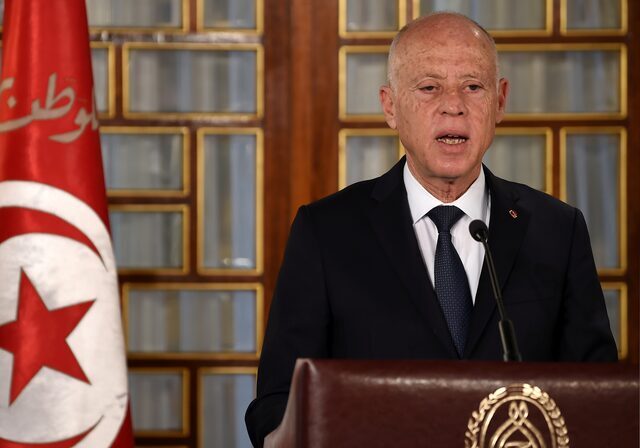Tunisian President Kais Saied has firmly stated that no deportation agreements allowing European nations to send back Tunisian migrants were signed under his leadership. Speaking during a ceremony marking the 25th anniversary of former President Habib Bourguiba’s death, Saied addressed the ongoing controversy surrounding Tunisia’s immigration policies.
Broadcast live by local station Mosaique FM, President Saied stressed that all such deals predated his 2019 election. “There have been no such agreements under my presidency,” he declared. His comments follow recent criticisms concerning the treatment of undocumented migrants, especially in the southeastern region of Sfax.
In response to the dismantling of informal migrant camps in the El Amra and Jebniana areas, the president said Tunisia acted out of humanitarian concern. “We thwarted a plan to resettle undocumented migrants in these areas. Our evacuation was peaceful, without the use of force, firearms, or tear gas,” he said, insisting that all individuals were treated “with dignity and respect.”
The Tunisian Forum for Economic and Social Rights (FTDES) previously cited a bilateral agreement signed on January 27, 2009, between Tunisia and Italy. That deal allowed for the gradual deportation of Tunisian nationals and the readmission of third-country migrants who had passed through Tunisia. The agreement was reportedly expanded in April 2011, increasing the rate of deportations from 40 people per week to around 160.
However, Saied made it clear that these agreements are not a part of his administration’s policies. His comments come at a time when Tunisia’s collaboration with European nations—especially Italy—on migration control and border security is under close watch.
Tunisia has faced rising pressure from Europe to help curb migration flows across the Mediterranean, but Saied has consistently pushed back against any implication that his government would agree to external control over Tunisian sovereignty.
With international concern growing about how Tunisia handles undocumented migrants, especially from sub-Saharan Africa, Saied’s clear-cut statement aims to reinforce his stance: no deportation deals have been made under his watch.

